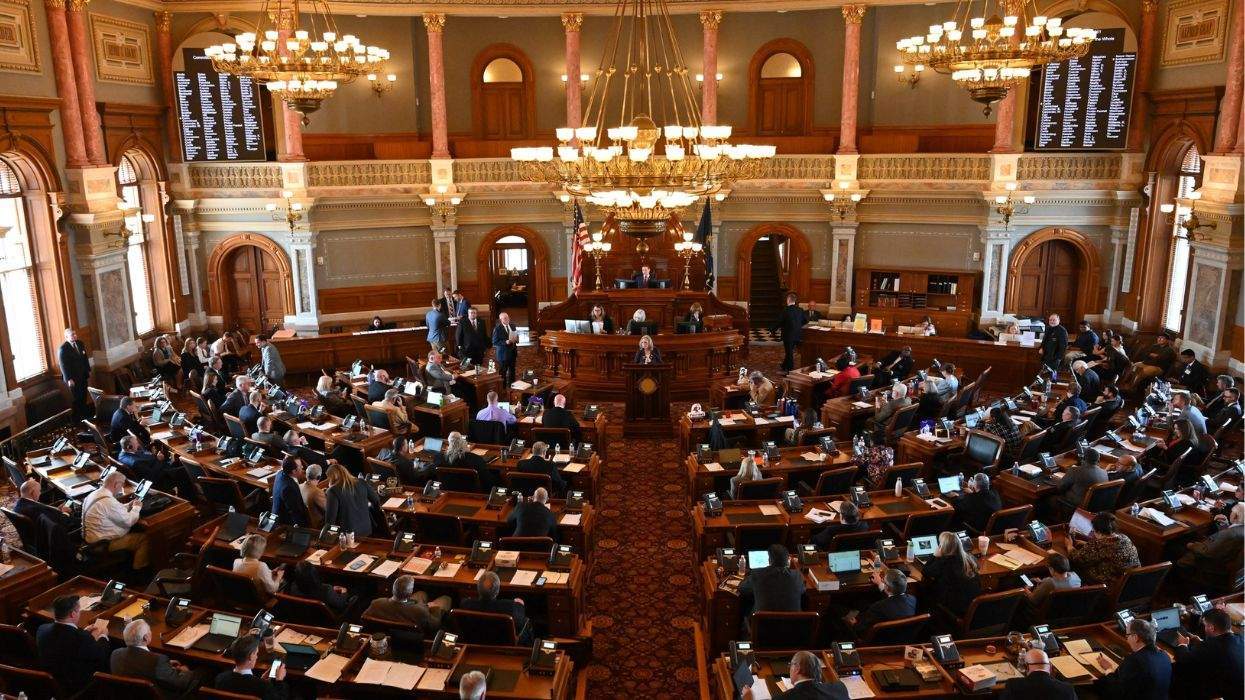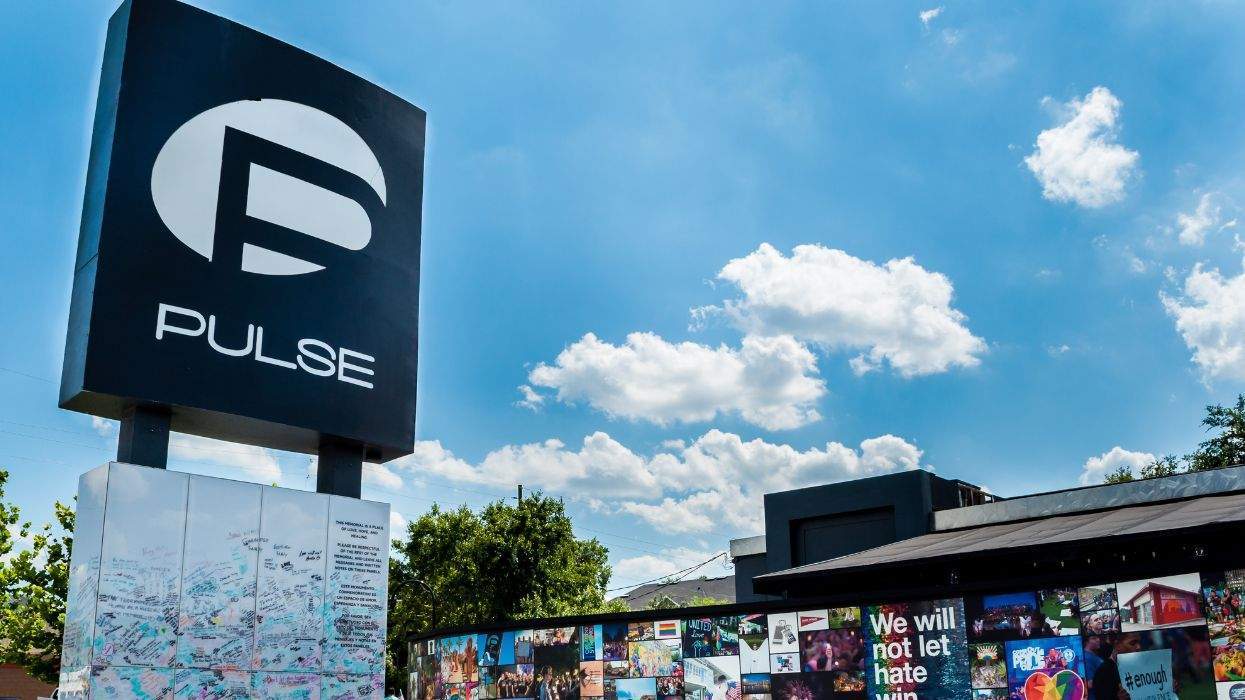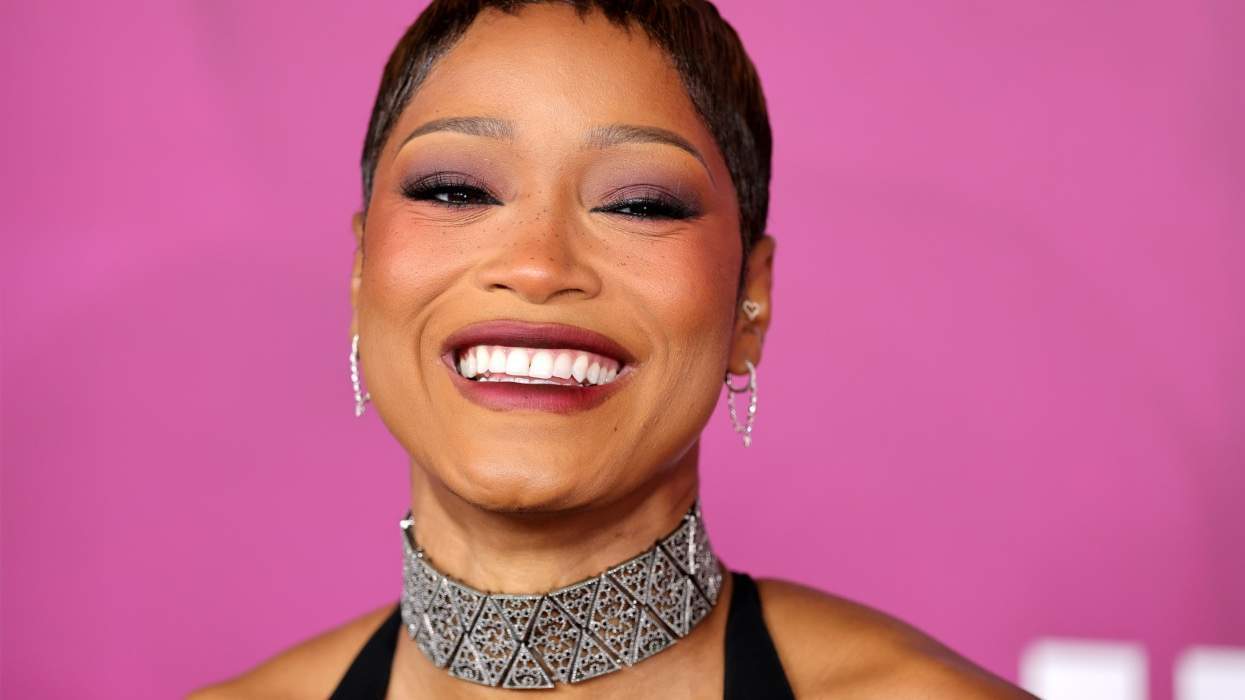"The culture we're all steeped in is straight culture," Cameron Esposito says. The narrative that keeps being repeated "is that queer people have not been harmed. Or if we were harmed, it was in the distant past."
And according to Esposito and her new memoir, Save Yourself, that's just not true.
The book tracks her story from childhood where she was a gender nonconforming kid, complete with a bowl cut and eye patch, to wanting to become a priest and going to a Catholic college, all the way to today where she's a writer, actress, and one of the LGBTQ community's favorite comedians.
Esposito recently spoke with The Advocate about what's it's like to be promoting a book called Save Yourself during a global pandemic, being people's first exposure to queerness, and her standup special, Rape Jokes, where she raised $100,000 for the national sexual assault hotline, RAINN.
Jeffrey Masters: What's it been like to promote a book called Save Yourself during this time?
Cameron Esposito: Right. So, you name a book two years before it's published. I think the title of the book is bonkers. Just having to promote any project, but especially a memoir right now...it's like, Come on. I feel fully up my own ass.
But the other side of it is, I keep hearing from other people that they want distraction and content and comfort and humor, so I feel like maybe my gauge on the situation is not the best one.
JM: You wrote in the book that people still come up to you after shows saying that you're the first out gay person they've seen. That really surprised me.
CE: It sounds wild. That is true. I played a club in Raleigh last year and a young person waited in line to talk to me and said that they had been there with their stepfather who was blown away by having any way to relate to me. Those are the folks I'm still reaching even at this point in my career. Sometimes there's a stepdad in the audience and I'm their whole context for queer people.
I had a web series that was called Ask A Lesbian with early days Buzzfeed; Buzzfeed before they had employees. This was 2014. I get a lot of queer folks at my shows who, generationally, that was the first exposure that they had to queer people. When those videos launched, they got millions and millions of views. It was a gap in time... Ellen's scripted show was no longer on the air. The L Word was no longer on the air. Tig Notaro's show hadn't started yet. There was this sweet spot where there actually was no lesbian representation that was about being a lesbian, really. We were minor characters in other shows.
So for a lot of folks that were just Googling around like, "What is a lesbian?" This came up. I hear this all the time. Wild, right?
JM: How was it different to tell your story in this format instead of onstage?
CE: I think that it was more impactful from an emotional growth standpoint. Some of the stories that I've told about being a kid on stage before, when writing it you have to read it so many times. It's just me and the page. There's not the popping of the bubble of emotions that an audience laughing does, and so I just feel like I had to encounter myself a lot more by writing this.
And it made me like myself more, my younger self especially. My little kid self was a person that I felt a lot of shame about before writing the book. And that I worked through.
JM: Was that a surprise to realize?
CE: Yeah, definitely. I think that I wanted to have this story in my mind that coming out was behind me, that the shame I had of being a gender-nonconforming kid was behind me, that the comments people made about my body, that I'm an adult and that's not what's happening in my daily life. I just didn't realize that that stuff was still impacting me.
And of course, it is.
JM: Because you're a public person, the expectation can often be that you've figured all this stuff out.
CE: The culture we're all steeped in is straight culture, even if we're the queerest possible person. I think that the narrative that straightness wants is that queer people have not been harmed. Or if we were harmed, it was in the distant past.
The number of times I've heard a straight cis dude comic talk about being called the F word when he was a kid; the gay F word. I've heard that joke a million times. A million comics seem to think that this is the unique experience that they had, that they were patrolled around their gender expression.
And I always think, "But what if that was true? Can you at all sense the resonance and how that would be different if that was true for you?" And so I think there's not that much space for trauma and harm and damage.
JM: Your last special was called Rape Jokes. What was the experience of promoting the show like, to have to talk about rape with every single interviewer?
CE: That was the most difficult part about that special because when I was doing it live, when I was prepping for it, doing these hundred-person shows over and over again in these really intimate venues, I'd meet the audience afterward and we'd hold space for each other. It was really beautiful and meaningful.
And I don't even mean this to be shitty to journalists, but sometimes I forget that it's just going to be a packaged...that people are going to be like, "So, Rape Jokes."
I just don't work for that reason. I work for my own benefit and hopefully a public benefit. I'm just not always thinking about the superficial rape joke questions. I was at Just For Laughs, the biggest comedy festival in the world, and they do back to back interviews. I sat down and they were like, "So, rape." I'm like, "How did I get myself into this situation?"
JM: Is a part of you afraid that someone will bring it up in every single interview you do now?
CE: No because of the time that I released it...I released it at that time for a reason.
Also, there was so much expectation and responsibility put on the folks that were speaking up at that time. I had to have a take on an entire movement and on individual comics. Any time a comic or a person would be outed for bad behavior, I would be contacted by a zillion outlets to give my take. And I would be like, "Why don't you just write about my work?" It's just so much emotional labor. I turned them down. By the way, never would I be asked to speak about another survivor. I wouldn't be contacted, "What is your take on Dylan Farrow?"
JM: You donated all of the proceeds from that special to RAINN, the national sexual assault telephone hotline. I think it's noteworthy that you donated not 10 percent or 50 percent, but 100 percent of the proceeds.
CE: It was $100,000.
I will say, just full transparency, it's not like that is some easy amount of money for me to donate. I think sometimes we don't know the wealth of people that are in the public eye. It was a really challenging decision to make that I really am glad I made.
I just say that to say that it is actually doable to make challenging choices, even if they affect your bottom line. It's actually doable. I have found it to be doable. That would have been nice money to have.
JM: You just had to cancel a massive tour for your book. In your new day to day, right now, are you still working and focusing on your career?
CE: I am trying to do the amount that feels OK. I have feelings of disappointment and of lost opportunity, some grief around a bunch of stuff that I had planned, the book tour and then I was going to go do an Off-Broadway run in New York. All that stuff has been removed.
For me, it feels like, "Oh no, just scrap the plan." It's like, "Remember that whole plan? And photoshoots and calls and all this stuff? Nope. Scrap it."
There's that feeling of loss and grief. Then there's the feeling of fear and isolation and I'm just trying to make sure that I tend to those things while also pivoting into trying to be of service right now. I feel like I'm trying not to go nuts. I also feel a responsibility to -- I don't know -- make them laugh.
Save Yourself is Cameron Esposito's first memoir and is available now.















